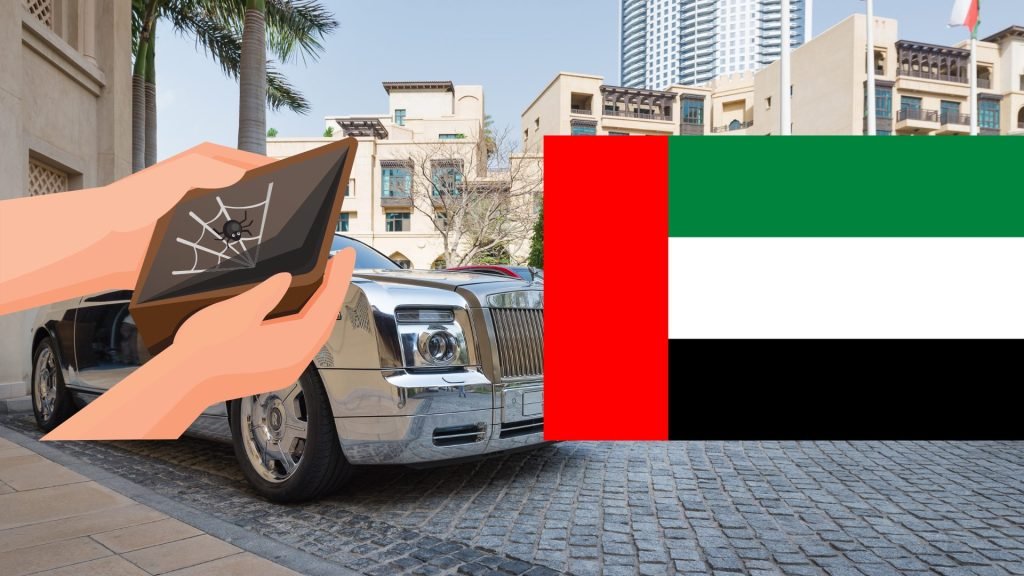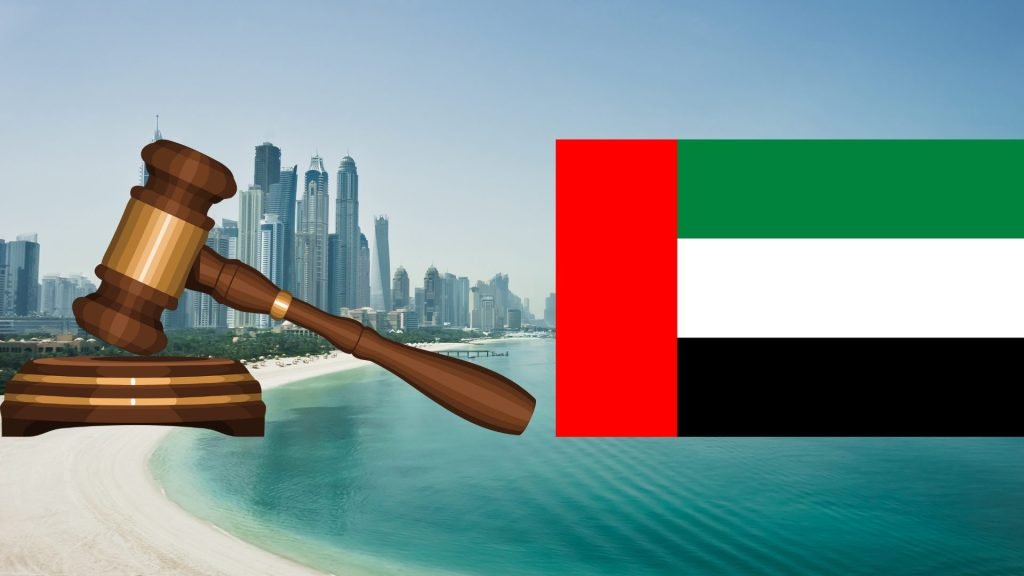Want to start a business in Dubai? Setting up a business in Dubai offers attractive opportunities for entrepreneurs. That’s why many entrepreneurs emigrate to Dubai.
However, the process of starting a business in Dubai differs significantly from that in Europe and can be much more complex and expensive. Often, you do get more for your money than just a registration. Because the process of starting a business in Dubai is challenging, entrepreneurs often choose to seek help from specialized intermediaries to facilitate the process of starting a business in Dubai.
Therefore, be sure to consult the website of the Dubai government to ensure that you are taking the right steps and have the most up-to-date information.
If you want to start a business in Dubai, it’s first helpful to know that there are two business structures you can choose from. In Dubai, there are two main structures for business establishment: Mainland companies and Free Zone companies.

Starting a Business in Dubai in 9 Steps
Setting up a business in Dubai can be attractive due to its strategic location, tax benefits, and modern infrastructure. However, the process differs from that in Europe and requires several steps. Below, we have created a guide for establishing a business in Dubai:
1. Choose a Business Activity
Determine which services or products you want to offer. This is an important step, as some business activities require specific permits. You can then register this activity with the Department of Economic Development (DED). You must then obtain initial approval from the DED. For some sectors, this is not very exciting, but for other sectors, you need more additional permits to be allowed to start a business in Dubai.
2. Select the Jurisdiction
Want to start a business in Dubai? Then you first need to think carefully about whether you want to start a business in mainland or in a free zone. Mainland and free zone both offer advantages and disadvantages. Dubai offers different jurisdictions for business establishment:
- Mainland: This allows you to operate without restrictions in the local UAE market. Mainland is the standard option if you want to start a business in Dubai. The disadvantage is that in many cases you need a local sponsor and therefore you are not 100% owner of your business. The big advantage is that you can do business anywhere in the UAE market and often have access to a large network through the local sponsor. Since 2020, the rules have been adjusted, and in many sectors, you can now be 100% owner.
- Free Zone: Offers benefits such as 100% foreign ownership and tax exemptions and provides a large network because each free zone is created for a specific sector. The disadvantage is that you can’t just do business in the mainland. It limits your activities to within the Free Zone or internationally. So if you come to Dubai and only continue to do business with other foreign companies, you are not restricted in this.
This choice of jurisdiction also directly determines what the other steps in this step-by-step plan look like.

3. Determine the Legal Structure
Choose the legal form that fits your business activities, this is comparable to choosing a Dutch sole proprietorship, partnership, or private limited company in case you choose for Mainland.
Mainland Legal Structure
If you are going to start a business in Dubai in mainland, you can choose from the following legal structures:
- General Partnership
- Two or more partners
- Jointly and individually liable with personal assets
- Limited Partnership
- Consists of:
- One or more general partners (full liability)
- One or more limited partners (liability limited to capital contribution)
- Consists of:
- Limited Liability Company (LLC)
- Liability limited to the share in the capital
- Up to 50 partners allowed
- Can be established by a local or foreign person or entity
- Single Ownership LLC: one owner, same regulations as for multiple owners
- Private Joint Stock Company
- Maximum of 200 shareholders
- Shares are not publicly tradable
- Can be established by one legal entity (company)
- The Single Ownership variant must include “One-Person Private Joint-Stock” in its name
- Public Joint Stock Company
- Capital divided into equal, tradable shares
- Founders take a portion of the shares, rest through public issuance
- Civil Company
- Two or more partners who carry out a professional activity (such as hairdressers, consultants, trainers)
- Sole Proprietorship
- One owner
- Fully personally liable for all obligations and debts
Free zone legal structure
For a free zone, you have different legal structures when starting a business in Dubai.
- Free Zone Establishment (FZE)
- One shareholder (person or company)
- Independent legal entity within the free zone
- Free Zone Company (FZCO)
- Minimum of two shareholders (persons or companies)
- Independent legal entity within the free zone
- Public Limited Liability Company (PJSC)
- Multiple shareholders
- Shares can be publicly traded on the stock exchange
- Private Limited Liability Company (LLC)
- 2 to 50 shareholders
- Shares not tradable to the public
- Liability limited to the contributed capital
- Branch of a Local or International Company
- Extension of an existing company (within or outside the UAE)
- Legally dependent on the parent company
4. Register the Trade Name
Before you can proceed with starting your business in Dubai, your company name must first be approved. Submit your desired company name for approval to the Department of Economic Development (DED) or the relevant Free zone authority. This agency will then review your company name to ensure it does not closely resemble other brands or is unsuitable as a company name in any way.
5. Apply for Approval
After approval of the company name, you will receive preliminary permission from the authorities to proceed with the establishment process.

6. Arrange the Required Documents
Once everything is in order, you will need several documents to really start your business in Dubai:
- Completed application form
- Passport copies of shareholders and the appointed manager
- Signatures of shareholders and the manager
- Notarized Registry Identification Code Form (RIC) for the manager
- Business plan
- Letter of intent with investment idea and plans
- Copy of an existing trade license or registration certificate (if applicable)
- Proof of ownership (if applicable)
- Two years of audited financial reports or a bank reference certificate (if required)
7. Obtain Special Permits
As mentioned earlier in step 1, you need special permits for certain sectors. You may be in an industry where you need more licenses than usual. These are often ‘sensitive’ industries such as healthcare, for example.
Depending on your business activity, additional permits from specific government agencies may be required. There are also special industries where you cannot be 100% owner as a foreigner:
- Security and defense activities and activities of a military nature
- Banks, exchange offices, financing, insurance, and production of banknotes or coins
- Telecommunications
- Other categories
- Commercial agencies
- Organization of Hajj Umrah
- Institute for reciting the Holy Quran
- Fishing
- Catching natural pearls
- Catching sea animals
View the full list: Foreign ownership restrictions.
8. Pay the Required Fees
The costs for setting up a business vary based on the chosen legal structure and location. It’s advisable to have a budget available that takes into account license fees, visa costs, and potential consultancy fees if you’re going to work with an external agency.
The exact cost depends on whether you’re establishing a company in a free zone or on the mainland.
- $ 17,000 for a company in a free zone in Dubai
- $ 4,085 for a one-person company in a free zone in Dubai
- $ 1,360-2,040 for a freelancer in a free zone in Dubai
- $ 4,700 – 9,500 average costs for a mainland company in Dubai.
8. Open a business bank account
After obtaining the trade license, you can open a business bank account with a local bank in Dubai.
9. Obtain residence visas
Have you started a company in Dubai? As a business owner, you can apply for a visa for yourself and your employees.
It is advisable to work with local business consultants during this process to ensure that all procedures are followed correctly and to avoid any legal complications. Also, be sure to check the official website of the Dubai government, which also provides information about starting a business in Dubai.
Importance of intermediaries
Given the complexity and variations in regulations between Mainland and Free Zone companies, many people who want to start a business in Dubai engage a specialized consultant. These intermediaries offer:
- Expertise: Insight into local laws and procedures.
- Efficiency: Acceleration of the establishment process and minimization of bureaucratic obstacles.
- Advice: Guidance in choosing between a Mainland or Free Zone structure, depending on business goals.
Why start a business in Dubai?
Why start a business in Dubai? Starting a business in Dubai is complicated, but it’s worth it. Over 30,000 companies have already been established in Dubai in recent years. Dubai positions itself as a leading business center with numerous advantages:
- Strategic location: A hyper-connected hub providing access to markets in the Middle East, Asia, Europe, and Africa.
- Infrastructure: State-of-the-art facilities and technology.
- Economic policy: Pro-business environment with stimulating regulations and tax benefits.
- Quality of life: A safe, multicultural environment with a high standard of living.





